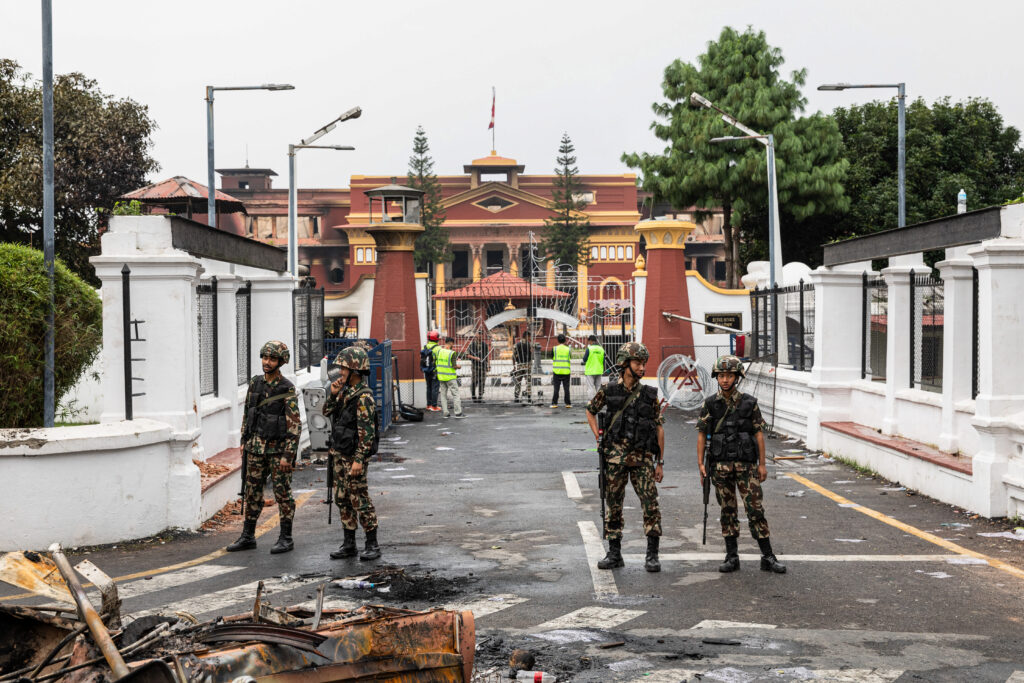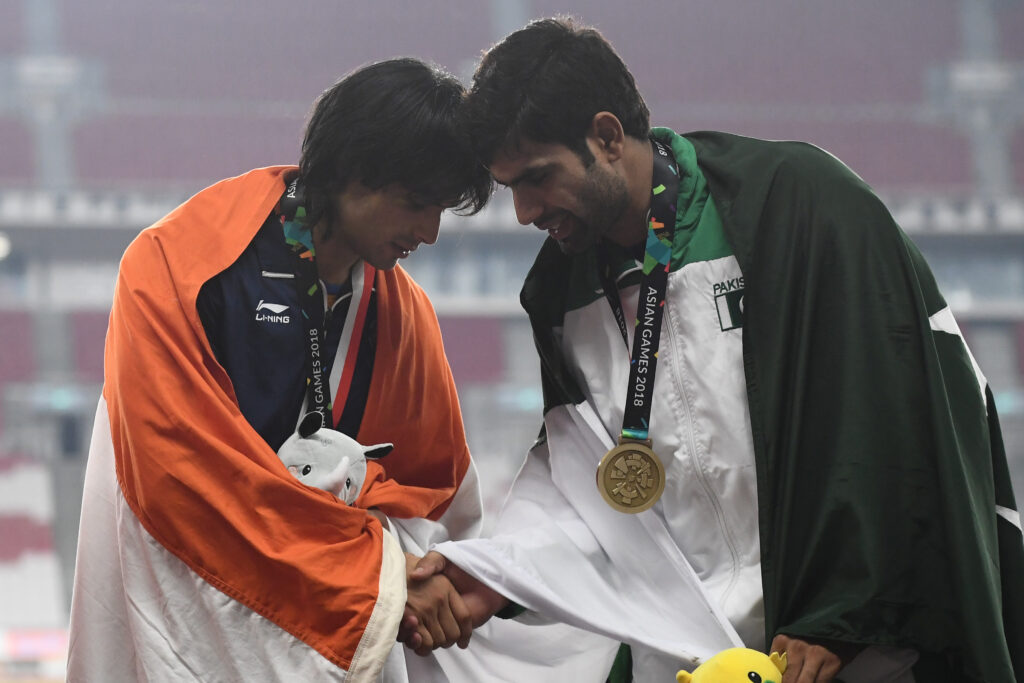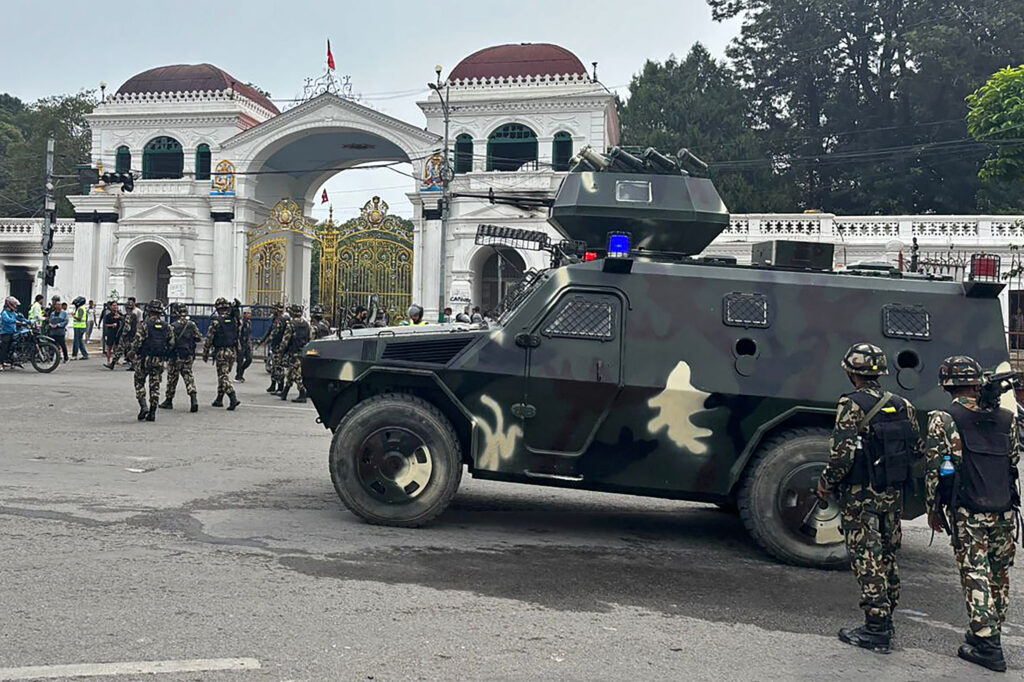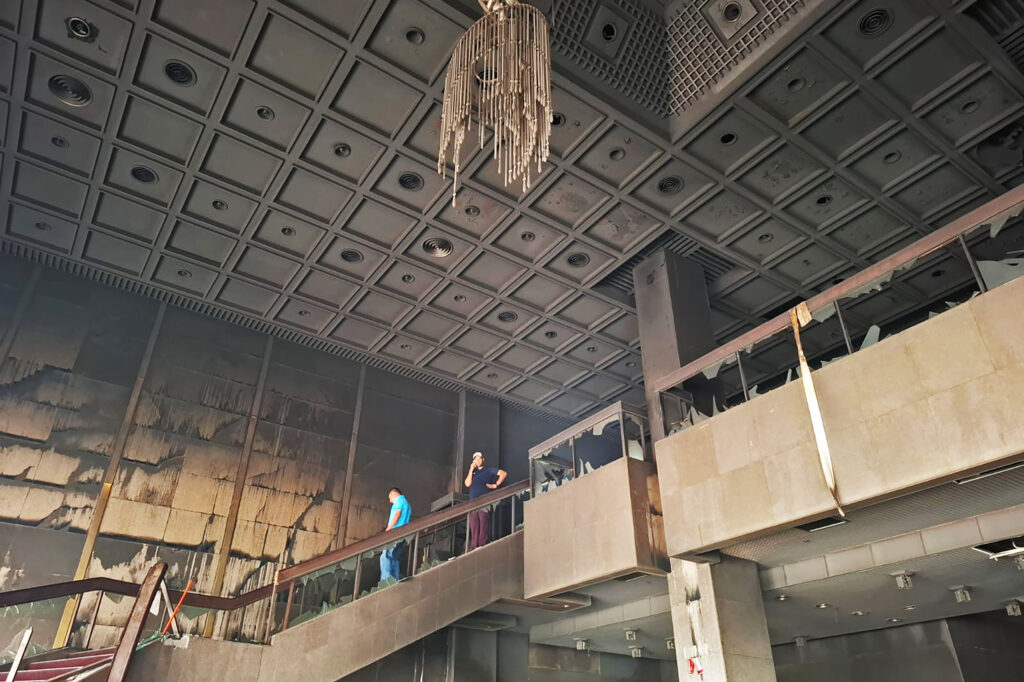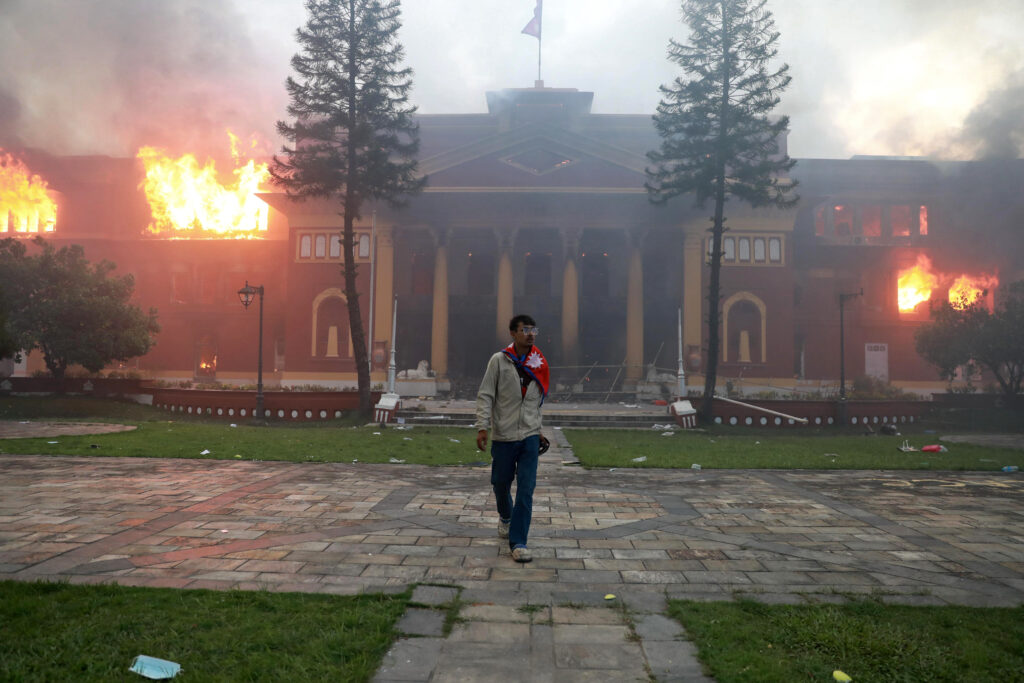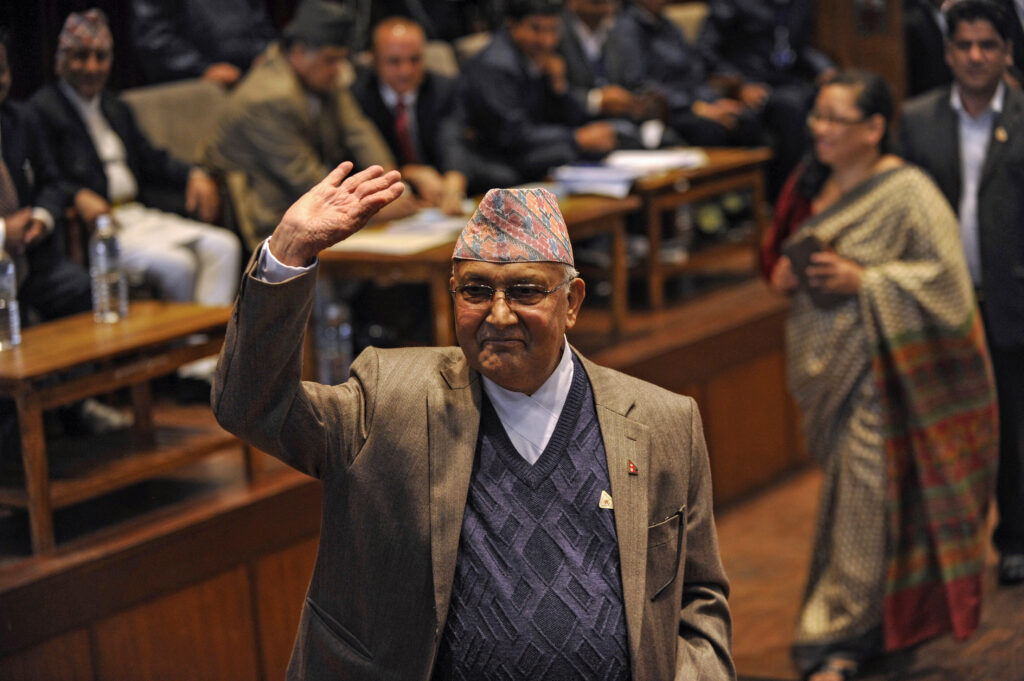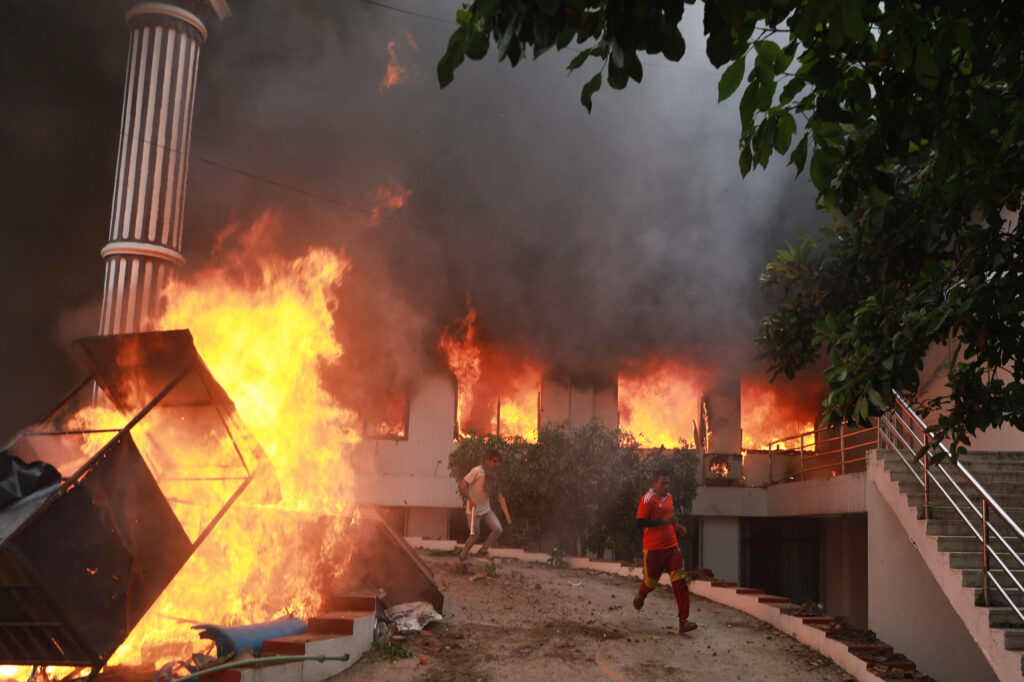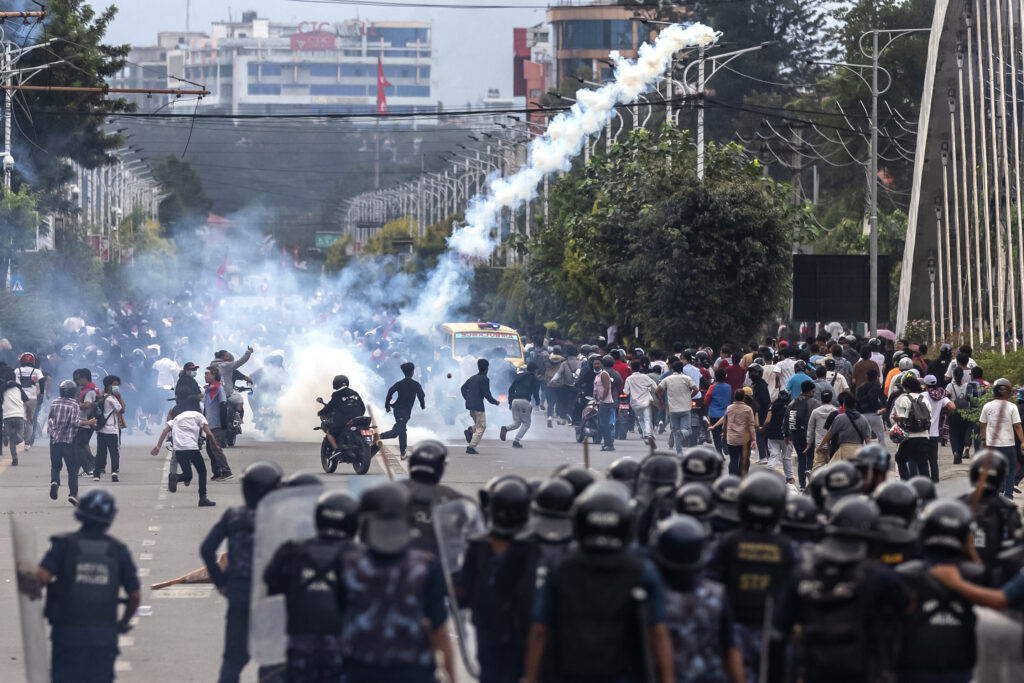President seeks end to crisis engulfing Nepal
Nepal’s president said Thursday he was seeking an end to the crisis that has engulfed the Himalayan nation since deadly protests this week ousted the prime minister and left parliament in flames.The army has imposed a curfew in the Himalayan nation of 30 million people, with soldiers patrolling the largely quiet streets for a second day after the worst violence in two decades.President Ramchandra Paudel appealed to “all parties to be confident that a solution to the problem is being sought, as soon as possible”.Army chief General Ashok Raj Sigdel has launched talks with key figures and “representatives of Gen Z”, a military spokesperson said, referring to the loose umbrella title of the youth protest movement.Demonstrations began on Monday in Kathmandu against the government’s short-lived ban on social media and over corruption, with at least 19 people killed in the crackdown.A day later, protests escalated into an outpouring of rage nationwide, with government offices, a Hilton Hotel and other buildings set on fire.In the chaos, more than 13,500 prisoners broke out of jails countrywide, leaving security forces scrambling to regain control. Only around 250 have been recaptured, according to Nepal’s security forces and an Indian border official.”Our first demand is the dissolution of parliament,” Sudan Gurung, a key figure among the Gen Z protesters, told reporters on Thursday.”My humble request to everyone, including political parties: please don’t send the same old leaders,” he said, saying the protesters were not seeking power themselves. “We don’t need positions in government,” he said. “We need real reform.”Protests fed into longstanding economic woes in Nepal, where more than a fifth of people aged 15-24 are unemployed, according to the World Bank, with GDP per capita just $1,447.- ‘Every effort’ -KP Sharma Oli, 73, a four-time prime minister, resigned Tuesday. His home was set ablaze the same day and his whereabouts are unknown.Constitutionally, 80-year-old Paudel should invite the leader of the largest parliamentary party to form a government.But much of the political old guard has vanished from view. “I am consulting and making every effort to find a way out of the current difficult situation in the country, within the constitutional framework,” said Paudel, whose presidential offices were also set on fire.Former chief justice Sushila Karki is the leading choice for interim leader, a Gen Z protester representative said Thursday, although their backing is not unanimous.”Right now, Sushila Karki’s name is coming up to lead the interim government — we are now waiting for the president to make a move,” said Rakshya Bam, an activist who was among those at the army meeting on Wednesday.Journalist Pranaya Rana said there were “divisions”, but it was “natural in a decentralised movement like this that there are going to be competing interests”.Karki, 73, Nepal’s first woman chief justice, has told AFP that “experts need to come together to figure out the way forward”, and that “the parliament still stands”. Kathmandu Mayor Balendra Shah, a 35-year-old former engineer and rapper, was also among the names suggested as a potential interim leader.But Shah said in a post on Facebook that he “fully supports the proposal” of Karki.”The job of this interim government is to hold elections, to give a new mandate to the country,” he said.
